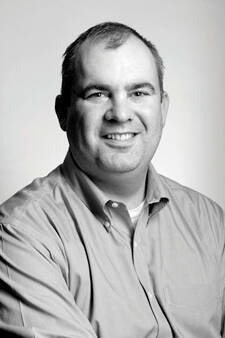When the Brazilian architect Oscar Niemeyer died in December at the age of 104, obituaries listed among his most significant edifices two structures built for remarkably different clients: the French Communist Party headquarters in Paris (1965) and the Roman Catholic cathedral in Brasília (1958). Another church design of Niemeyer’s is considered by many architects to be even more significant than his church in Brasília because it predated the liturgical and architectural ferment around the Second Vatican Council by several decades: the Church of St. Francis of Assisi in Pampulha, Brazil (1940). Described by fans as a whimsical conjuring of a bouncing ball and by foes as a garish and profane take on an airplane hangar, the building (whose design features a prominent row of parabolas) has had a profound influence on church architecture throughout the world. It would not inevitably look out of place in a present-day North American parish, a testament to the reach of Niemeyer’s ideas about sacred buildings.
One other thing: like Le Corbusier, his mentor (and fellow church designer—he built the famous “Pilgrim’s Chapel” in Ronchamp, France), Niemeyer was an atheist.
A month after Niemeyer’s death, the secular and the religious met again at the second inauguration of President Obama in Washington, D.C. On that day, Supreme Court Justice Antonin Scalia drew attention for the jaunty cap he sported, a replica of the one worn by St. Thomas More in a famous portrait by Hans Holbein. Because More chose martyrdom in 1535 rather than betray his conscience at the demands of Henry VIII, some commentators suggested Scalia was making a none-too-subtle point about the Obama administration’s ongoing political struggle with Catholic bishops over religious exemptions to elements of the Affordable Care Act. More’s final words are reputed to have been, “I die the King’s good servant, but God’s first.”
Robert Bolt, the British writer whose play “A Man for All Seasons” (later made into an Academy Award-winning movie) did much to launch Thomas More into the public imagination four centuries after his death and several decades after his canonization, described More as “a man with an adamantine sense of his own self,” a person whose unswerving commitment to his faith and his own conscience made it possible to make the ultimate sacrifice. But Bolt (who also later wrote the screenplay for “The Mission”) admired More because of his defense of conscience, not his religion. Robert Bolt was an atheist.
Strange bedfellows, no? They are not alone. Xavier Beauvois, the director of the 2010 cinematic masterpiece “Of Gods and Men,” also identifies himself as an atheist, despite the explicitly religious nature of that film. The list goes on and on. What artists like Beauvois and Bolt (and Niemeyer and Le Corbusier, in their own way) share with believers is an admiration for a transcendent aesthetic, a sense that art need not just comment on the human condition but can lift up the human spirit toward something beyond itself, something that believers might call God. Their belief (or lack of it) might make them seem unlikely fellow travelers for those who are deeply invested in the Christian tradition, but they are fellow travelers nonetheless. Pope Francis, who has linked large-scale acts of violence to the “attempt to eliminate God and the divine from the horizon of humanity,” nevertheless also suggested recently that atheists could be “precious allies” of the church in efforts “to defend the dignity of people, in the building of a peaceful coexistence between peoples and in the careful protection of creation.”
And why not? As Flannery O’Connor once acidly noted about Catholic fiction, a fairly consistent motif of self-consciously Christian art, architecture and literature is its deplorable tendency toward either the saccharine or the obscene, as if saints are innocent or terrible and never anything in between. If we truly accept the significance of the Incarnation, we also accept that nothing in creation is foreign to God and to belief, even if crafted for a dramatically different purpose. The sacred need not always be set against the profane; the church need not always be against the world. And in valorizing a transcendent aesthetic, in holding up what is praiseworthy and godly, the atheists can indeed be our allies. Sometimes they point to God in places the rest of us fail to look.








